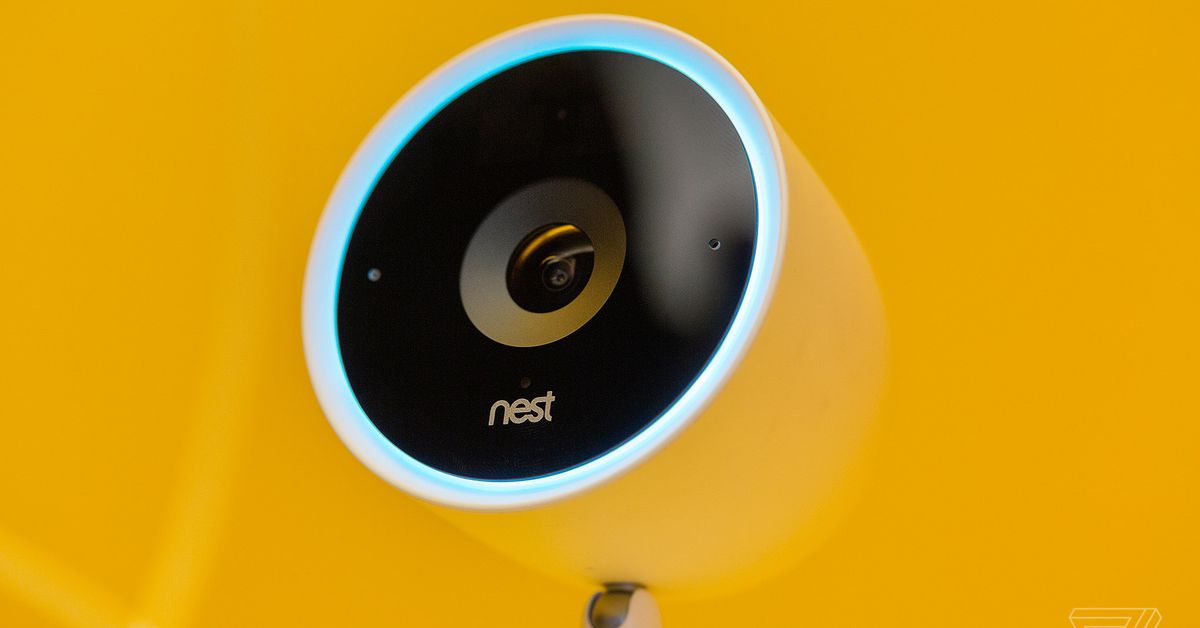
Google may start adjusting the quality of video captured by your Nest security camera to help ease the strain put on broadband networks. The company is making the changes at a time when more people than ever are using internet-connected devices at home during the COVID-19 pandemic.
“To answer the global call to prioritize internet bandwidth for learning and working, in the next few days we’re going to be making a few changes,” Google said in a statement to The Verge. “We believe these changes have the potential to help make it easier for communities to keep up with school, work, and everything in between.” Nest users on Twitter first reported receiving an email from Google announcing the changes.
If you’re in the US and your Nest’s camera quality and bandwidth settings are higher than the default, Google will be rolling those settings back to the default, the company tells The Verge. If your settings are lower than the default, they will remain the same. Regardless of what your quality and bandwidth settings are, no other settings on your Nest camera will change, the company says.
And if you want to revert your quality and bandwidth settings back to the way you had them before, you can do that, according to Google. That might be something you want to do if you actively rely on your Nest camera to keep track of what’s going on around your home, as reduced video quality may make it harder for you to make out what’s happening on your Nest video feed.
If you don’t change your settings after Google reduces the quality, the company plans to roll the settings back to the way you had them before once networks are less inundated with traffic, Google says.
You might also see changes with Ambient Mode slideshows from Nest displays, Chromecast, and Cast devices — as Google is reducing the rotation interval and the resolution of photos in those slideshows globally, the company tells The Verge.
Reducing how much bandwidth its Nest devices use isn’t Google’s first move to help ease the amount of traffic on broadband networks — the company reduced YouTube’s default video quality to standard definition (480p) on March 24th. Amazon, Apple, and Netflix have also reduced video their quality in Europe to help keep broadband networks working smoothly, while Sony has reduced download speeds for its PlayStation Network in both Europe and the US.
https://www.theverge.com/2020/4/14/21221423/google-nest-camera-reduce-video-quality-bandwidth-covid-19-pandemic

